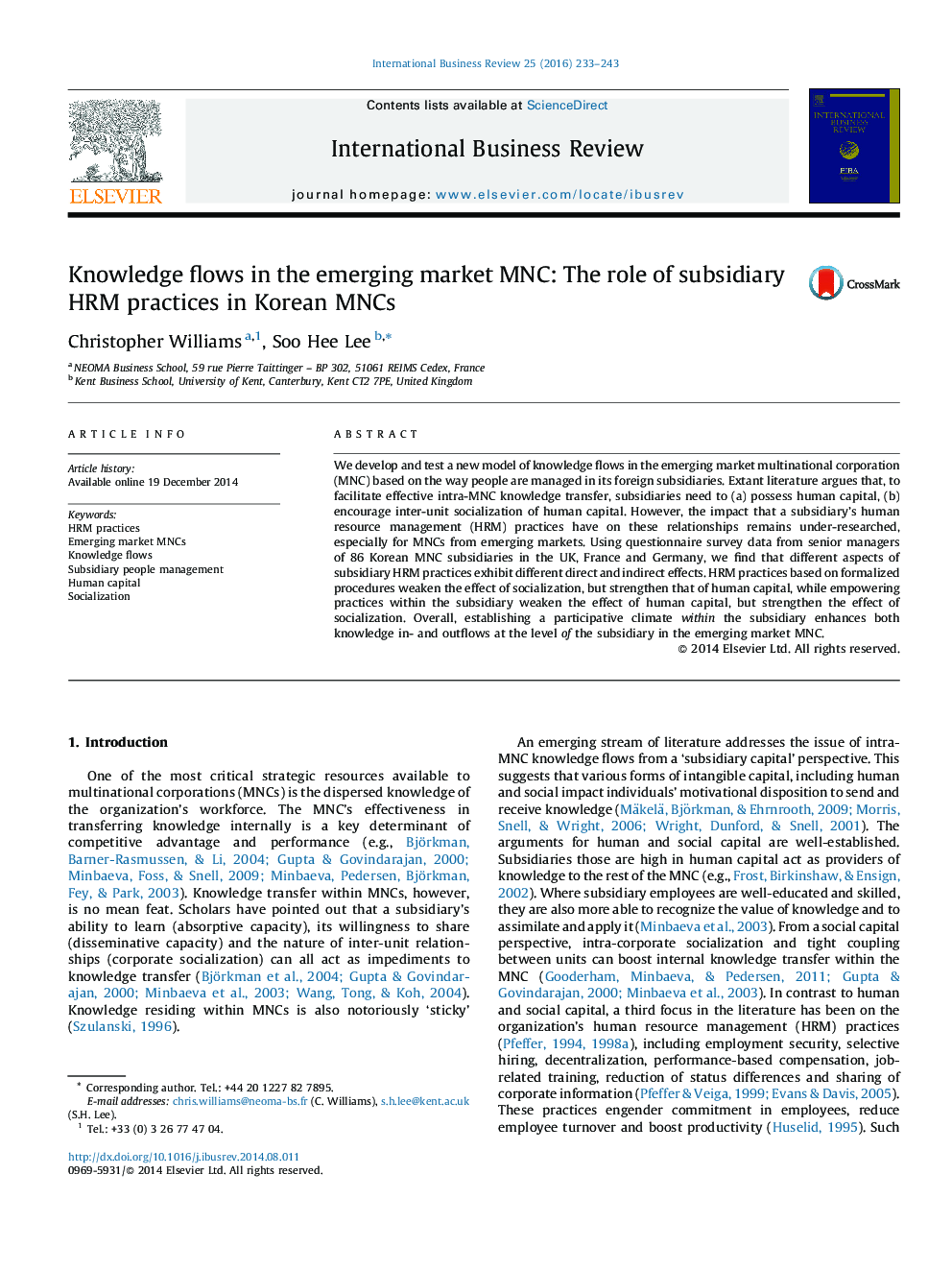| Article ID | Journal | Published Year | Pages | File Type |
|---|---|---|---|---|
| 1001245 | International Business Review | 2016 | 11 Pages |
•Subsidiary HRM practices have indirect impacts on foreign knowledge flows in emerging market MNCs.•We analyze data from Korean MNC subsidiaries in the UK, France and Germany.•Formalized HRM practices weaken the effect of socialization, but strengthen that of human capital.•Empowering practices weaken the effect of human capital, but strengthen the effect of socialization.
We develop and test a new model of knowledge flows in the emerging market multinational corporation (MNC) based on the way people are managed in its foreign subsidiaries. Extant literature argues that, to facilitate effective intra-MNC knowledge transfer, subsidiaries need to (a) possess human capital, (b) encourage inter-unit socialization of human capital. However, the impact that a subsidiary's human resource management (HRM) practices have on these relationships remains under-researched, especially for MNCs from emerging markets. Using questionnaire survey data from senior managers of 86 Korean MNC subsidiaries in the UK, France and Germany, we find that different aspects of subsidiary HRM practices exhibit different direct and indirect effects. HRM practices based on formalized procedures weaken the effect of socialization, but strengthen that of human capital, while empowering practices within the subsidiary weaken the effect of human capital, but strengthen the effect of socialization. Overall, establishing a participative climate within the subsidiary enhances both knowledge in- and outflows at the level of the subsidiary in the emerging market MNC.
